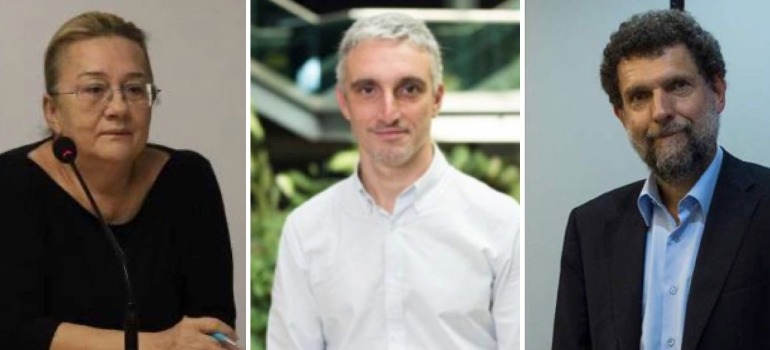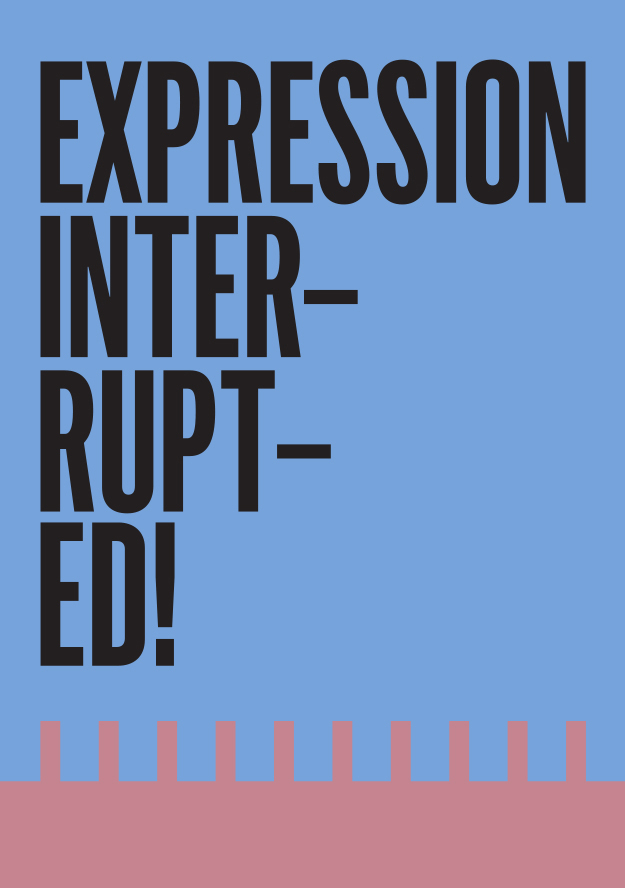Journalists and academics bear the brunt of the massive crackdown on freedom of expression in Turkey. Scores of them are currently subject to criminal investigations or behind bars. This website is dedicated to tracking the legal process against them.


Prosecutor seeks aggravated life imprisonment for Osman Kavala, Mücella Yapıcı and Yiğit Aksakoğlu and up to 20 years in prison for Çiğdem Mater, Hakan Altınay, Mine Özerden, Can Atalay, Tayfun Kahraman and Yiğit Ali Ekmekçi
The prosecutor in “Gezi Park trial” issued his final opinion of the case on 6 February 2020, seeking convictions for nine of the 16 defendants, all of whom are indicted for allegedly “attempting to overthrow the government” under Article 312 of the Turkish Criminal Code (TCK). The indictment claimed that the defendants had orchestrated and/or financed 2013’s nationwide Gezi Park protests.
In their final opinion, the prosecution asked the 30th High Criminal Court of Istanbul to convict businessperson Osman Kavala, the only jailed defendant in the case, and his co-defendants Yiğit Aksakoğlu and Mücella Yapıcı as charged, seeking aggravated life imprisonment for all three. The prosecutor asked the court to rule for the continuation of Kavala’s imprisonment pending the appeal process, citing “flight risk.”
The prosecutor asked the court to convict Çiğdem Mater, Hakan Altınay, Mine Özerden, Can Atalay, Tayfun Kahraman and Yiğit Ali Ekmekçi of “assisting the commission of the alleged offense,” pursuant to Article 39 of TCK, which is punishable by 15 to 20 years in prison.
The prosecution also requested the court to separate the files against Memet Ali Alabora, Pınar Alabora, Can Dündar, Gökçe Yılmaz, Handan Meltem Arıkan, Hanzade Hikmet Germiyanoğlu and İnanç Ekmekçi, claiming in the final opinion that they had “masterminded the protests.” The prosecutor asked the court to wait for the execution of their arrest warrants.
Wiretaps of phone conversations and several business meetings between some of the defendants ahead of or during the Gezi Park protests are held as evidence against the defendants in the prosecutor’s final opinion.
Calling the Gezi Park protests an “uprising,” the prosecutor claimed that “the protests were premeditatedly manipulated and orchestrated by the [defendants] who spearheaded the protests in the streets and on social media since day one, and who were supported by international figures,” and that “this clearly demonstrated that the Gezi uprising was the product of a plot […] which aimed to spread violent protests across the country through various terrorist groups […] and as a consequence, incite the public to an armed revolt against the government of the Turkish Republic.”
The full text of the final opinion (in Turkish) can be accessed here.
The next hearing in the Gezi Park trial is scheduled for 18 February, when the defendants are expected to make their final defense statements in response to the prosecutor’s final opinion.
